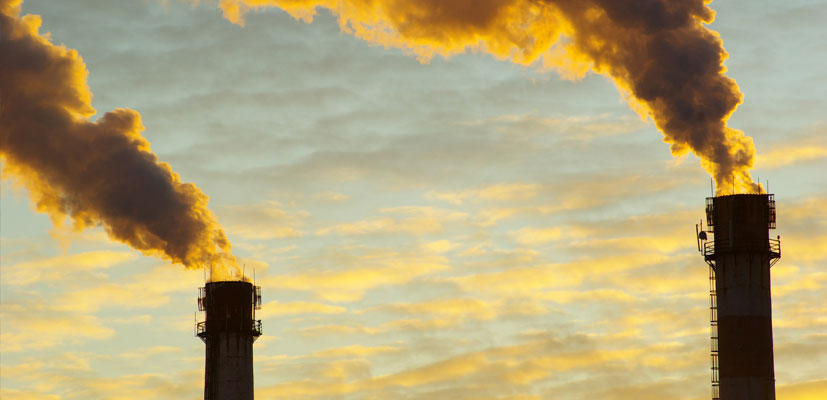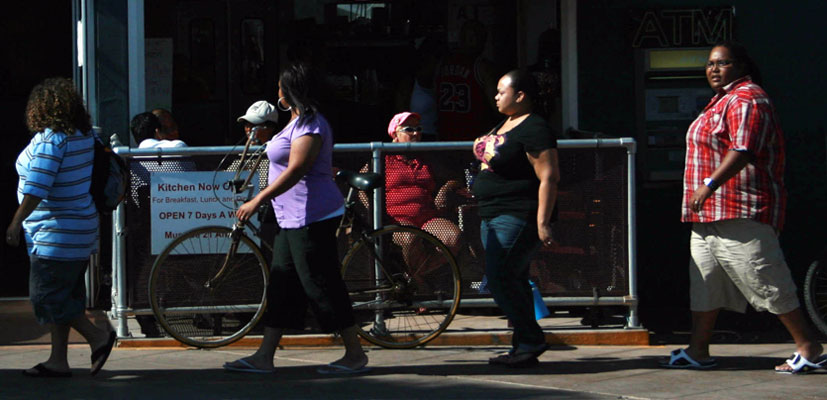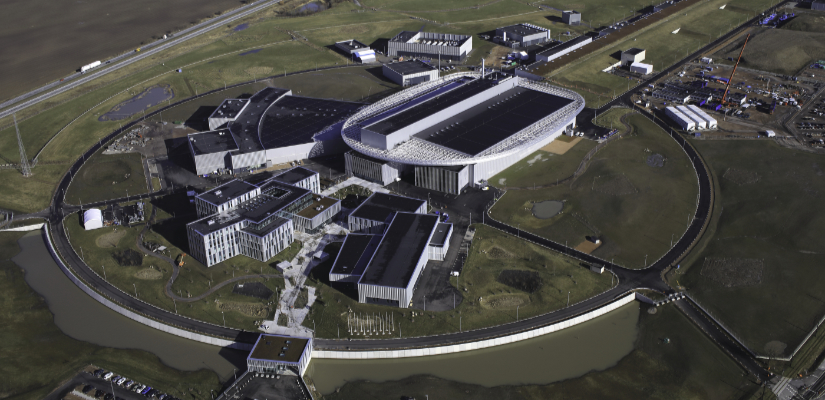

From space the Earth appears as a blue planet, but about
one billion people are forced to drink contaminated water,
while another 2.3 billion are suffering from water shortages.
With climate change the importance of water increases.
The oceans absorb around 2bn tonnes of CO2 per year,
maybe even 2.8-2.9bn tonnes. Increasing CO2 alters the
chemistry of seawater – known as ocean acidification –
which affects marine life. On land, shortages create water
conflicts between countries and people.
Crucial water


Air pollution kills 7 million people each year, according
to the World Health Organisation. Worst hit are cities
in India, China and Pakistan. In China, about 1.6 million
people die from air pollution each year. In Europe, the
number of premature death from air pollution is 430.000
-800 000 persons.
Air pollution kills


The price drop in solar and wind power has initiated an
energy revolution. In Westerns
Australia a renewable
energy hub of 50 GW is planned. It will produce 3.5 million
tonnes of hydrogen per year or 20 million tonnes of green
ammonia in a project estimated at USD 100 bn. In Western
Australia there is another project of 26 GW and in Oman
one of 25 GW.
Energy revolution


The WHO warns that the obesity epidemic creates a health
crisis of immense proportions. The number of overweight
reached 2.3 billion in 2016, compared with 857 million in
1980. Weak socioeconomic groups suffer. Among African-
American women in the US 50 percent have obesity.
The US has the highest proportion of obesity among OECD
countries: 35 percent of women and 34 percent among men.
The obesity rate is even higher for women in arab countries:
40-50 percent in Saudi Arabia, Qatar, the UAE and Kuwait.
Obesity epidemic


Unlike many other of the world's major cities Greater Tokyo
with 37 million inhabitants is functioning with first-class
public transport, sewage and sanitation systems.
Central to the sustainable city is an efficient land use in the
station near areas of dense settlement and concentration
of activities within walking distance of 1000 meters, and that
the station is integrated with the surrounding neighborhoods
and the region.
Sustainable city

Humanity's collective knowledge explodes. With the James
Web Telescope astronomers can study time shortly
after
the Big Bang. With the construction of the neutron spallation
source ESS in Lund physicists will be able to study materials
and microcosmos. Intelligence Watch monitors technological
progress and its implications for sustainable development.
ESS contributes

Scandinavia’s Sustainable Tech Banana Beckons Japan
“Scandinavia’s Sustainable Tech Banana Beckons Japan” is a report about the existing business, research and political relations between Japan and Scandinavia. It recommends Japan to collaborate more with Europe’s more sustainable version of California’s Silicon Valley, which in the report is called Scandinavia’s Sustainable Tech Banana due to its shape. It is a world innovation leader, not only in tech and digitalisation, but also in social innovation, gender policy and sustainability. In addition, the report recommends the Scandinavian countries to collaborate more with Japan as it is the most developed country and Europe’s main strategic partner in Asia, and as such a crucial partner towards a sustainable development. The report is translated to 北欧のサステナブル・テック・バナナから日本への招待状 by Intelligence Watch’s Japanese partner OSINTech and can be downloaded in Japanese here. The English version can be requested by email to info@intelligencewatch.org.
Partnership with OSINTech and Tankyu Intelligence Center in Japan
Intelligence Watch, OSINTech and Tankyu Intelligence Center in Kobe, Japan, have formed an international alliance for sustainable development. OSINTech has developed RuleWatcher, an ESG OSINT (Open Source Intelligence) tool that helps companies develop business strategies that take environmental and human rights concerns into account. The partnership helps the organisations to exchange ideas between Japan and Scandinavia – two of the most developed in the world – as we face the same challenges with climate change in a time of a difficult geopolitic situation.
Read more about the alliance at OSINTech here, at TIC here and in Japanese at Sankei here.
A Climate Club as a complementary design to the UN Paris agreement
The UN Paris agreement is characterized by low levels of commitment. In a paper in Policy Design and Practice Håkan Pihl, vice-chancellor of Kristianstad University, argues that new agreements should cover only nations that are willing to high levels of commitments and reciprocity. They should use measures that governments can control and be made accountable for. Commitments should be short-term and few-dimensional and should incentivize efficient reductions, prevent leakages to outside nations and provide sanctions for noncompliance. Further, they should provide incentives to outsiders to reduce emissions and encourage them to join the agreement. A Climate Club that harmonizes minimum national carbon prices (i.e. carbon taxes), introduces a common carbon tariff, and welcomes new members to meet these criteria. Such a complementary design also has the potential to expand and, with time, provide a global price on carbon. Read the full paper here
Höganäs aims for net-zero climate impact by 2037
Höganäs AB has very ambitious plans to transform its production of metal powder and use fossil free electricity and bio coke, reduce carbon dioxide emissions and invest for future sustainability.
– We work actively to minimize our environmental footprint and are committed to significantly reducing carbon dioxide emissions, and we have set high internal ambitions to have a net-zero climate impact by the year 2037 across the entire value chain (scope 1, 2 and 3 upstream), said CEO Fredrik Emilson at a conference arranged by Intelligence Watch.
Together with Cortus Energy, Höganäs are building a facility for renewable energy-gas and bio-based coal. The plans follow similar ambitious plans from the other Swedish metal industry. SSAB and LKAB, together with Vattenfall, are making a joint effort to develop the first fossil-free steel under the name HYBRIT. The technology has the potential to reduce Sweden’s total carbon dioxide emissions by at least ten percent.
CEO Fredrik Emilson discusses with Anders Olshov, Director Intelligence Watch.










